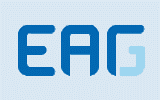-

24 September, 2010
The event was organized with the help of the International Training and Methodology Centre for Financial Monitoring (ITMCFM).
The event was organized with the help of the International Training and Methodology Centre for Financial Monitoring (ITMCFM).
Representatives from the EAG member states including China, Kazakhstan, Kyrgyzstan, Russia, Tajikistan and Uzbekistan took part in the conference alongside experts from Rosfinmonitoring and various government and financial institutions and educational and training establishments.
In his address to the participants of the event the EAG Chairman Mr. Oleg Markov noted that the EAG activities in enhancing methodology, conducting typologies research and disseminating best international practices rely on the contribution not only from government agencies, but also from a broad expert community engaged in financial and economic security issues.
Head of Rosfinmonitoring Mr. Yury Chikhanchin who opened the conference also emphasized high relevance of the topics discussed by the participants.
One of the keynote speakers Co-chair of the EAG Working group on mutual evaluations and legal issues and head of Rosfinmonitoring’s Legal department Mr. Pavel Livadny talked about the role of the expert community in mitigating ML/TF risks. In particular, he drew attention to non-banking financial services and new schemes of money laundering through electronic payments.
According to Mr. Livadny, effective AML/CFT measures are based on experts’ activities in researching typologies and enhancing cooperation of the government with the private sector. He also noted that in Russia legislation is being developed to provide for regulating payments through electronic terminals. A law on national payments system is being elaborated in order to create a comprehensive legislative framework for electronic payments.
Results of an expert survey “Fighting money laundering as economic reality and political necessity”, conducted by an independent consulting agency, were presented at the conference. Over 60 experts from banking sector, government agencies, financial analyst and consulting companies alongside representatives from specialized training and educational institutions participated in the survey by providing their opinion on the role and contribution of the civil society in AML/CFT.
The survey proved high level of awareness of the problem of money laundering in the modern society. Almost all the experts (98%) agreed on the opinion that money laundering is a considerable threat to the national economy and private sector. Over 60% of respondents assumed that the civil society institutions can significantly contribute to AML/CFT activities.
The majority of the experts also commented on the positive impact of development of national AML/CFT regimes. According to them, implementation of international AML/CFT standards contributes to enhancing transparency of national economies and reducing shadow economy (in the view of 81% of respondents), provides for positive political image of a country at the international level (agreed on by 73% of respondents), boosts investment appeal of the national economy (according to 54% of respondents), etc. One of the main drawbacks entailed by the international AML/CFT standards, as mentioned by the experts, lies in complication of financial transactions (21% of responds). The experts also provided their opinion on potential forms of participation of the civil society institutions in developing national AML/CFT regimes in the region.
According to Director General of the ITMCFM Mrs. Galina Bobrysheva, experts from both private and government sectors can significantly contribute to enhancing national AML/CFT regimes and welcomed all the participants of the conference to join interactive AML/CFT expert community on the EAG website in order to share experience in conducting research and mitigating ML/TF risks.
Vice-principal of the Russian Law Academy under the Ministry of justice Mr. Viktor Astanin made a presentation on the experience of the academy in conducting specialized research on corruption. He mentioned that one of the key problems of research in that field as well as AML/CFT is entailed by lack of unified scientific approaches and suggested that young researchers of the region should be more actively involved in the process. He also emphasized that the EAG provides a very effective platform for sharing experience and coordinating research activities as well as conducting AML/CFT training.
As a result of the conference, the experts agreed on participating in joint consultative and research projects and taking part in the EAG survey on mitigating ML/TF risks for the private sector. They suggested that the interactive expert community on the EAG website would provide a platform for coordination and further development of these activities.

 Login to your account
Login to your account Eng
Eng Рус
Рус